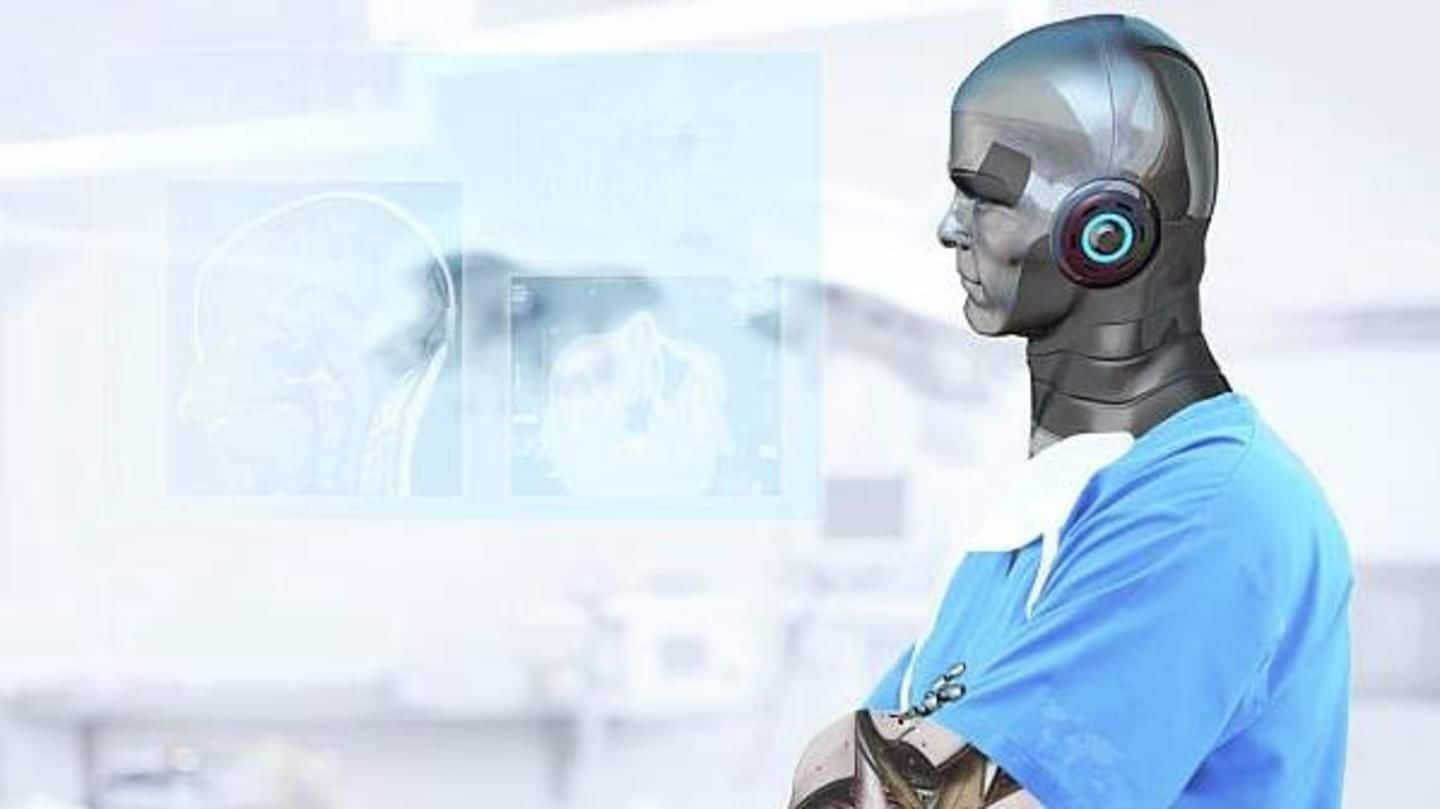
Study: This computer code detects skin cancer better than doctors
What's the story
In a first of sorts, researchers have demonstrated that artificial intelligence is better than human beings at detecting skin cancer. On Tuesday, a study published in the Annals of Oncology revealed that a deep learning convolutional neural network (CNN) could detect skin cancer faster, and with more accuracy than both experienced and inexperienced dermatologists. This, understandably, will have far reaching implications. Here's more.
Quote
AI to user in a new era of diagnostic assessment
"Artificial intelligence (AI) promises a more standardized level of diagnostic accuracy, such that all people, regardless of where they live or which doctor they see, will be able to access reliable diagnostic assessment," said the study.
The CNN
What exactly is the deep learning convolutional neural network?
The CNN, as per a press release, is an artificial intelligence system "inspired by the biological processes at work when nerve cells (neurons) in the brain are connected to each other and respond to what the eye sees." The CNN is a fast learner, can improve on its own, and has been likened to a child's brain, which improves with each session of training.
The competitors
The AI engine competed with 58 dermatologists, including experts
The AI engine was trained to distinguish between dangerous and benign skin lesions by a team from the US, Germany, and France, using over 100,000 images. It was then put to the test against 58 dermatologists from across 17 countries. Roughly half of them were of an "expert" level with over 5 years of experience, 19% had 2-5 years of experience, and 29% were beginners.
The study
Details of the procedure of the study
Doctors were first shown 100 images of skin lesions and asked to distinguish between malignant melanomas and benign moles. Four weeks later, they were given clinical information about the patient, and close-up images of the same cases. Both the times, the dermatologists were asked to make diagnoses and decisions like whether surgeries were required. The CNN was also shown the same images.
Findings
The engine beat dermatologists both times
In the first instance, the dermatologist could identify 86% of malignant melanomas, and 73% of benign lesions. The CNN, however, correctly identified 95% of malignant melanomas. In the second instance, equipped with better knowledge, dermatologists' performances improved - they could identify 89% of malignant melanomas and 76% of benign moles correctly. However, this improved performance still fell short of the CNN's numbers.
Data
The incidence of skin cancer is growing
Meanwhile, health officials are of the opinion that both melanoma and non-melanoma skin cancer is on the rise. In the US, more than 76,000 people are diagnosed with melanoma, and more than 9,300 die of it every year. Early detection is essential for effective treatment.
Man vs machine
Machines won't replace dermatologists, at least for now
However, the researchers have ruled out machines replacing doctors for now, citing various issues which need to be addressed before the AI can come into standard clinical use. Rather, researchers said that the AI could become a super-useful diagnostic tool for doctors. Yet, they also added that "sooner than later, automated diagnosis will change the diagnostic paradigm in dermatology".